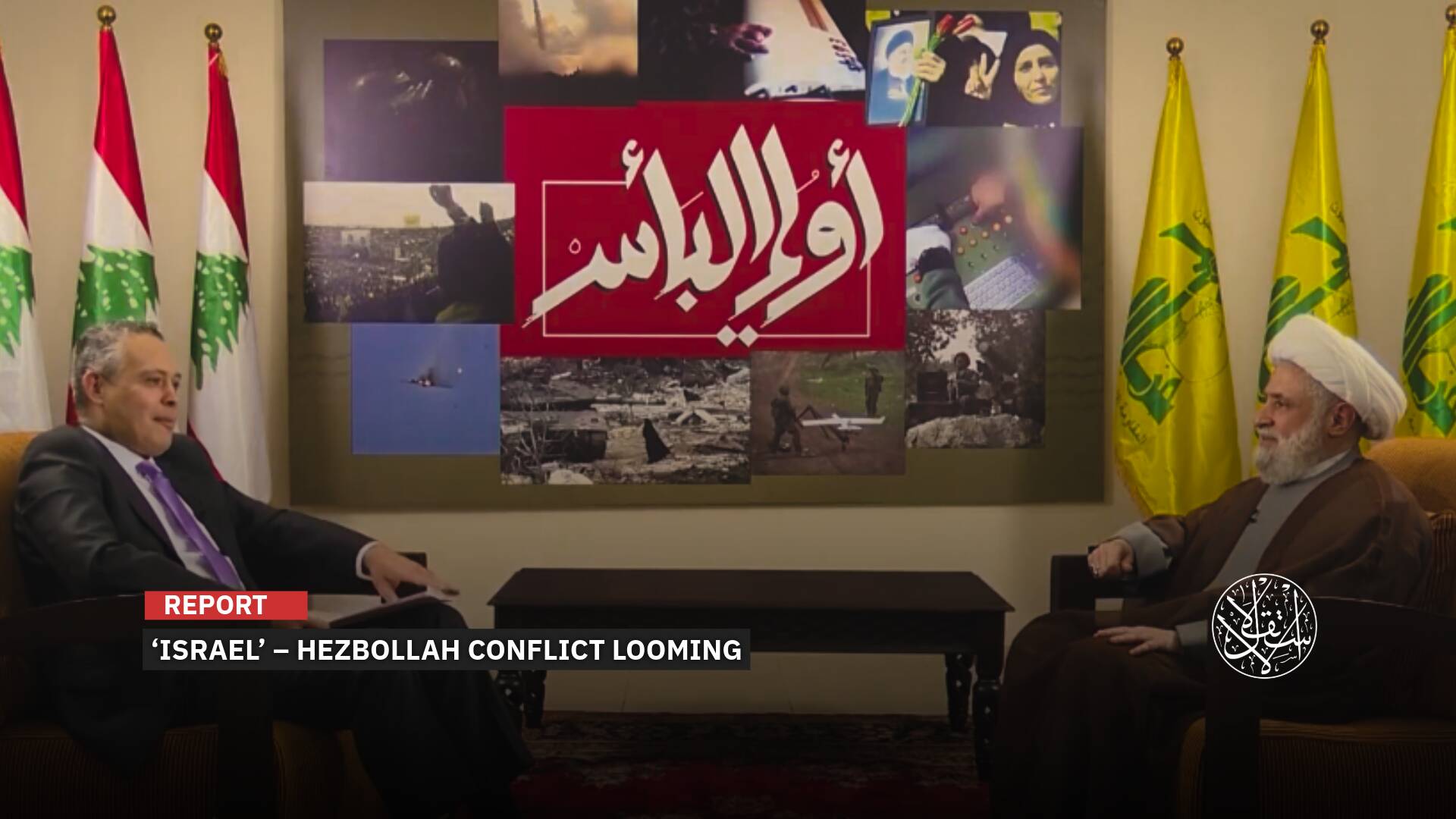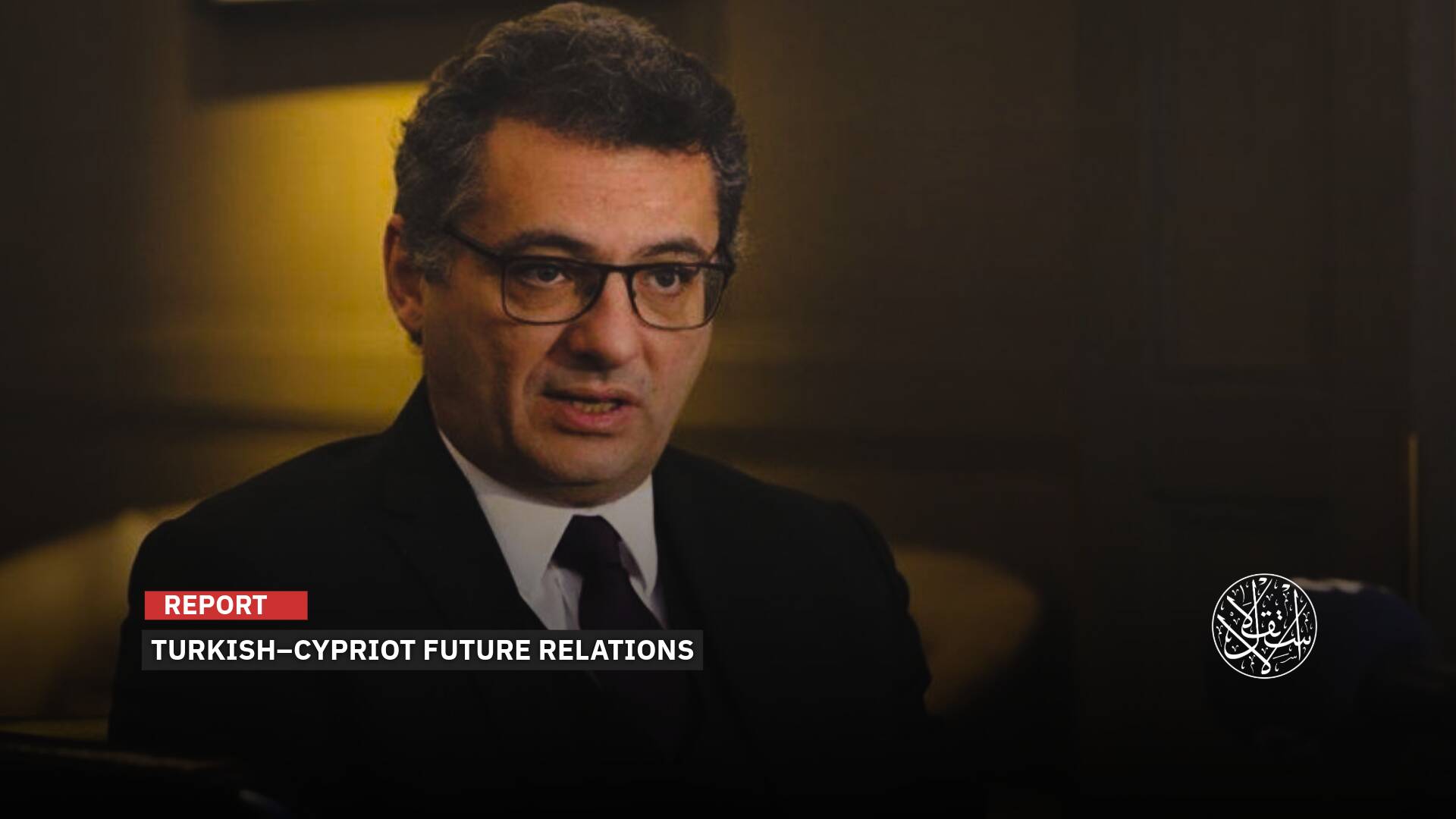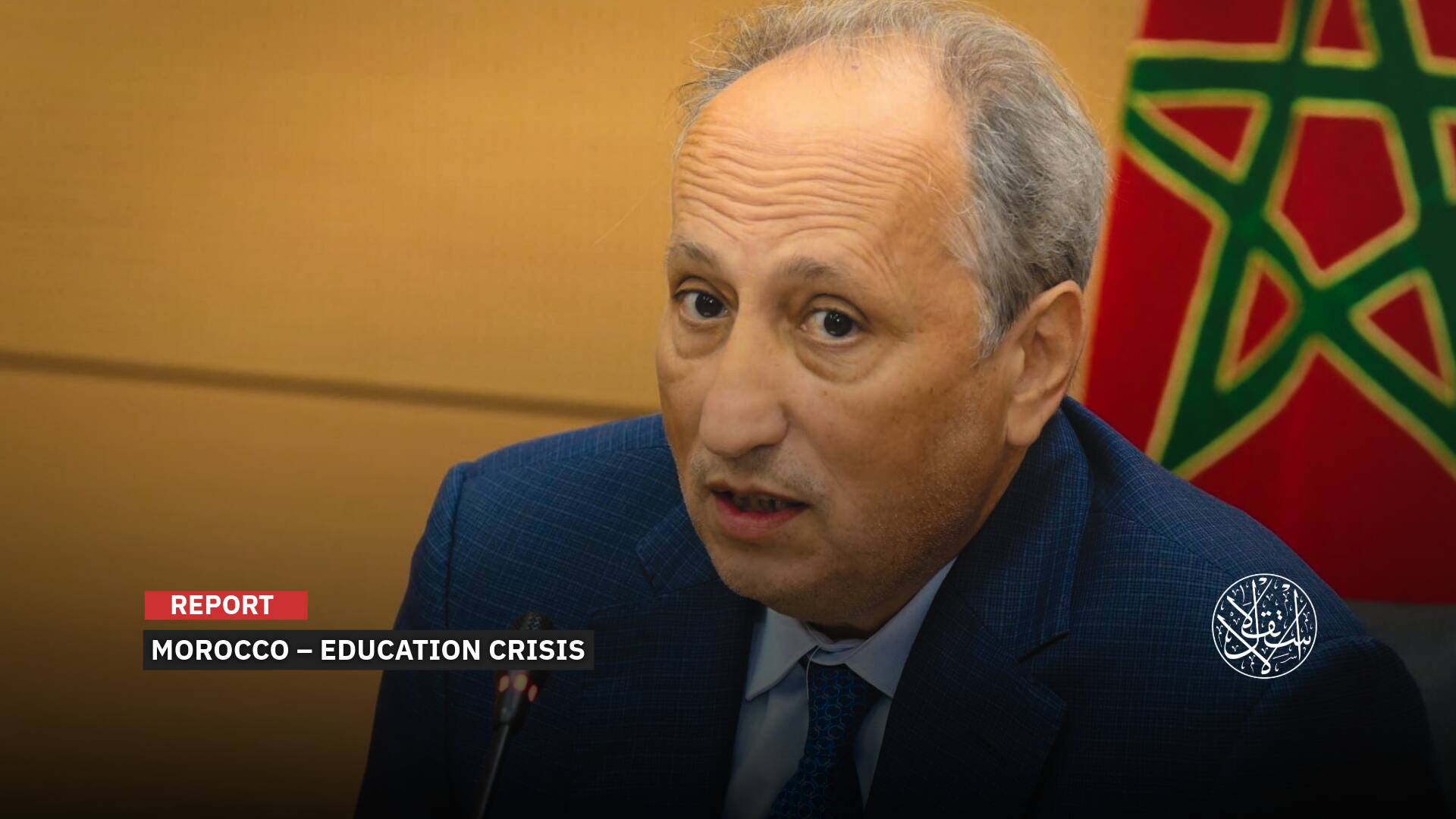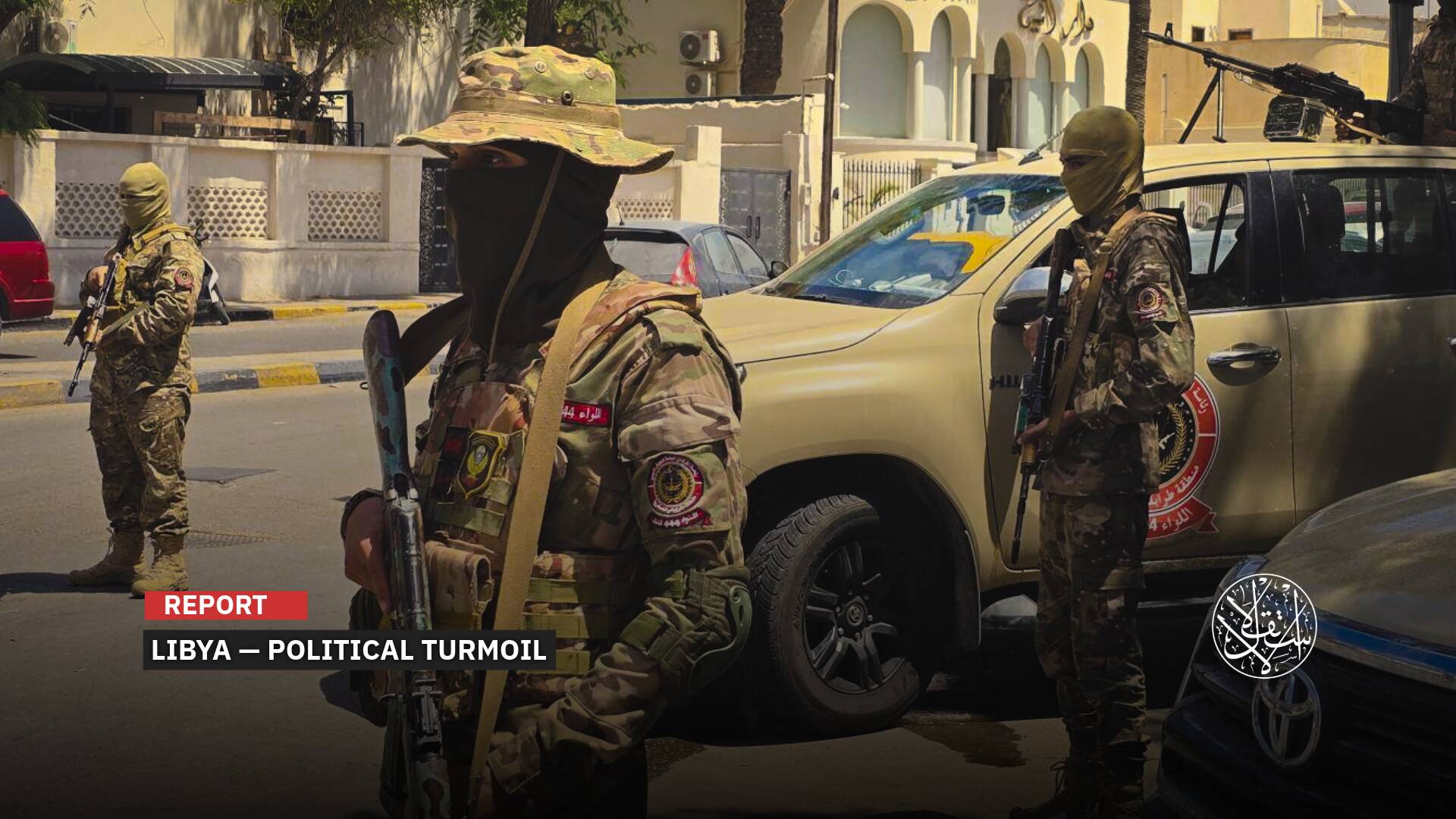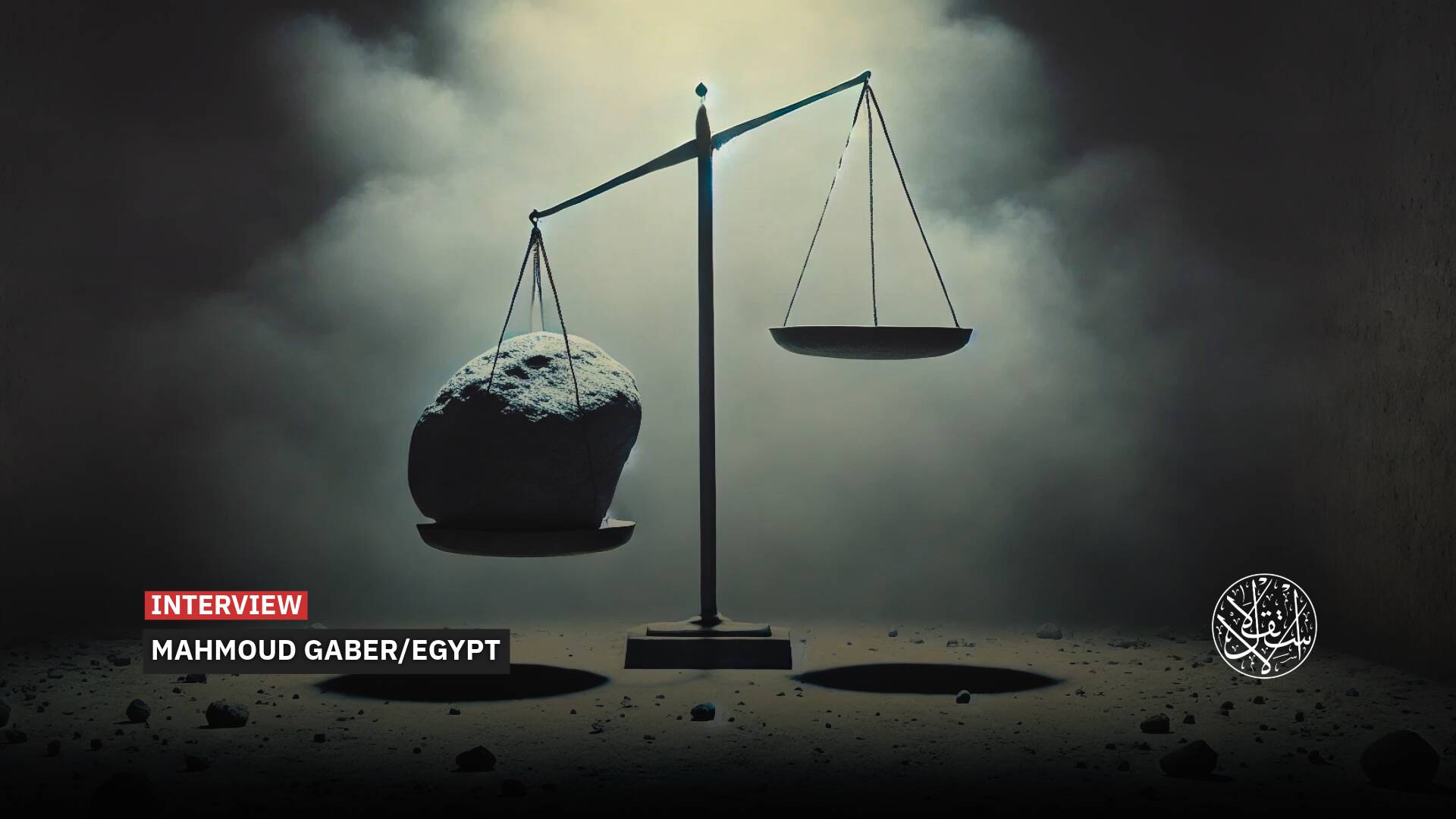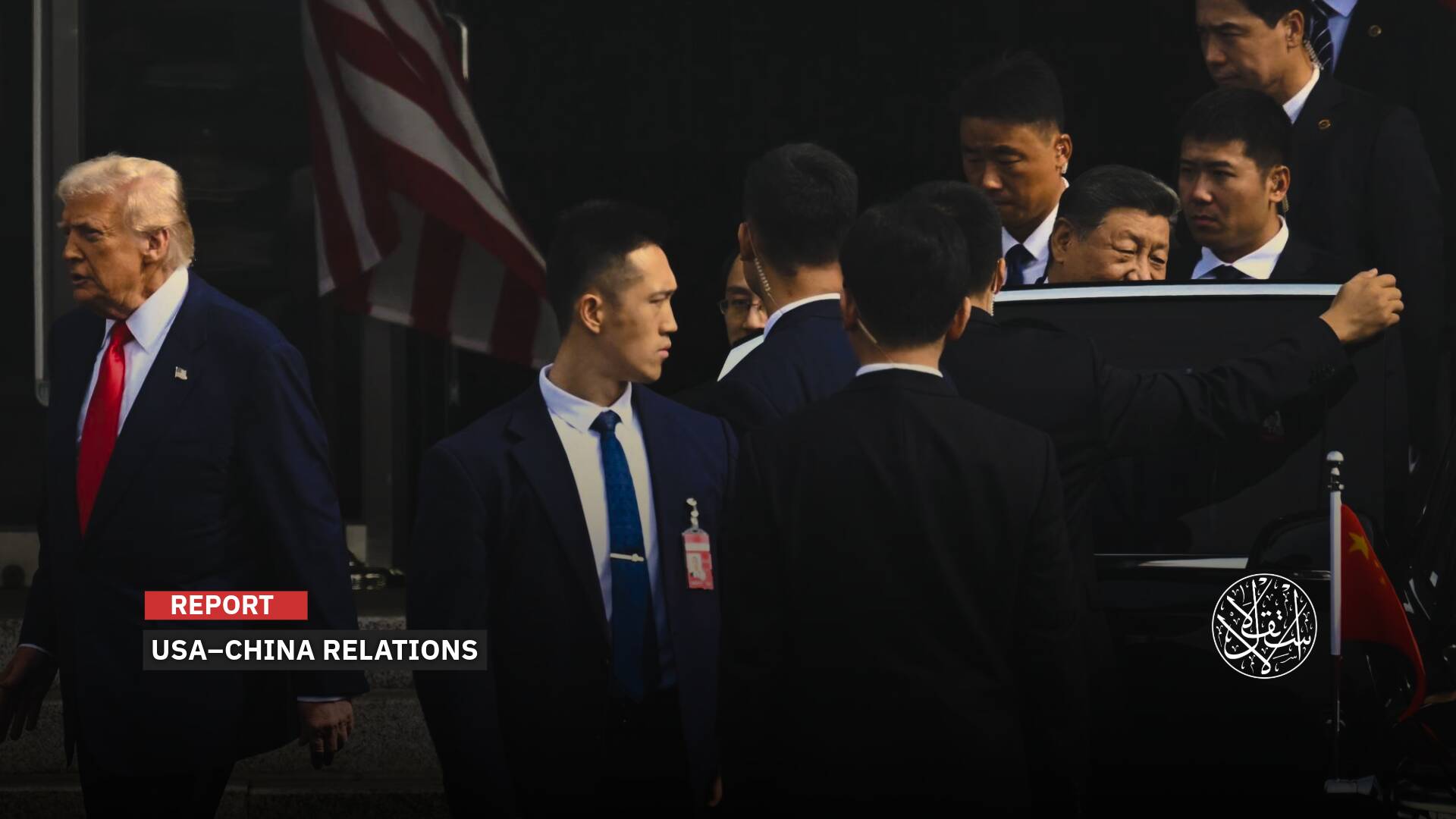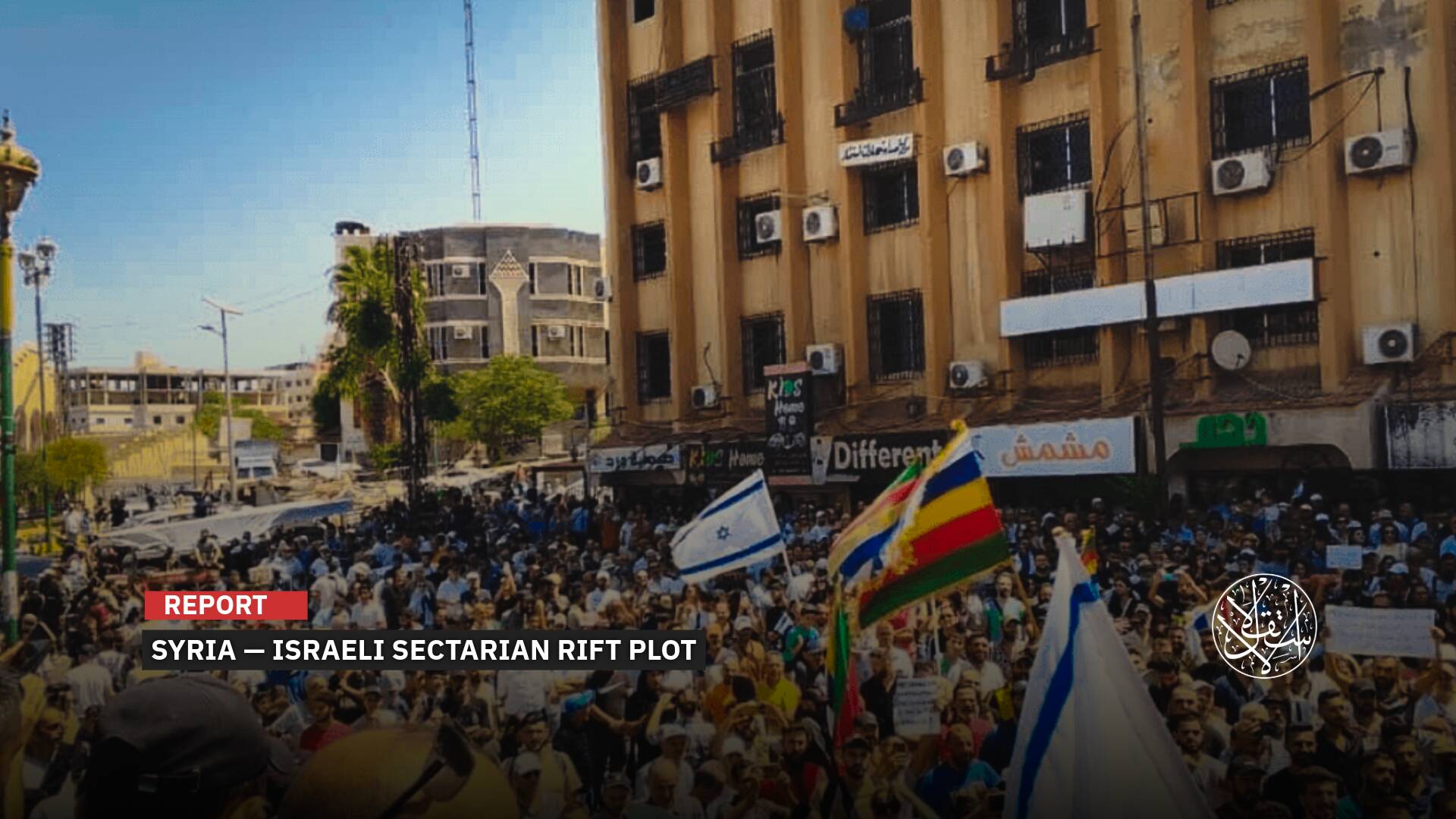Haftar Leverages Egypt and Russia’s Support While Pursuing Dynastic Rule in Libya

The visit likely aims to discuss Syria's developments and their impact on Egypt and Libya.
Two days after the visit of Egypt's new intelligence chief, Hassan Mahmoud Rashad, to the family of the Libyan rebel general Khalifa Belqasim Haftar, Haftar's forces launched an attack on the "Tendi" camp, which is affiliated with Libya's Presidential Council, in the town of Ubari, southwest Libya.
Questions have arisen regarding the potential link between the visit, which took place on December 29, 2024, and the subsequent attack, which occurred just two days later, with discussions about "the importance of advancing the political process in Libya" taking place during the visit.
The 101st Battalion, led by Ahmed al-Shamikh and part of the Tarik Ben Zeyad Brigade (TBZ) commanded by Haftar’s son, Saddam, seized the Tendi Mountain camp after entering Ubari.
The camp is under the management of Ali Kanna, a commander aligned with the Presidential Council’s military forces in the Sabha region.
Haftar’s move is seen as a clear breach of the ceasefire agreement signed in Geneva in October 2020 between the Joint Military Committee, known as "5+5," which includes five military officials from western Libya and five from Haftar’s forces in the east, according to officials in the Tripoli-based government.
They have been engaged in dialogue for several years aimed at unifying the military and implementing the ceasefire agreement under the auspices of the United Nations Support Mission in Libya (UNSMIL).
Libya is currently grappling with a political crisis, marked by a power struggle between the internationally and UN-recognized Government of National Unity, led by Abdul Hamid Dbeibeh, and a rival administration in the east, appointed by the House of Representatives three years ago and headed by Osama Hamad.

Haftar's Family
When Lieutenant General Hassan Rashad, Egypt's newly appointed head of intelligence, visited Libya, the stated goal was to discuss "regional and local developments" with Khalifa Haftar and support "efforts to advance the political process," namely "reconciliation" between the east and west of the country.
Haftar's office manager, General Khaled al-Tamimi, spoke of the general objectives of the meeting, which were "to discuss the latest regional and local developments" and “support efforts to advance the political process in Libya, contributing to achieving security and stability in the region.”
A former Egyptian diplomat, with ties to the Libyan dossier, informed Al-Estiklal that the timing of the visit, following the ousting of Bashar al-Assad’s regime, suggests that it was intended to discuss developments in Syria and their impact on Egypt and Libya.
The visit, according to the diplomat, is linked to the Libyan crisis, particularly concerning the transfer of Russian forces and bases from Syria to Libya, a country already grappling with turmoil.
The diplomat also pointed to growing Egyptian concerns about the recent escalation of conflicts in Libya and the possibility that the events in Syria could embolden Libyan factions hostile to Haftar, encouraging them to return to military action against him.
This comes after Egypt intervened in 2019, halting the advance of Tripoli’s forces toward eastern Libya by issuing direct military threats.
Sources close to the Egyptian government confirmed to Al-Estiklal that a key aspect of the Egyptian intelligence chief's visit to Khalifa Haftar was to reassure the renegade general that Egypt stands firmly behind him, urging him not to fear the fate of Bashar al-Assad in Syria, amid growing Libyan voices suggesting that his own future could mirror that of the Syrian leader.
The sources emphasized that Haftar appeared to interpret this as a "green light" to once again shake up the political landscape in Libya, moving to seize control of remaining major oil rights, particularly in the Sharara oil field, to pressure the Tripoli government and demonstrate his military strength against any attempt to oust him.
The sources also indicated that the visit aimed to familiarize the new head of intelligence with Haftar’s plans in Libya, particularly in light of both internal and regional developments.
Reports indicate that Egypt has conveyed instructions to Khalifa Haftar to align with the steps of both the House of Representatives and the High Council of State, particularly regarding the formation of a new government.
The goal is to encircle the Tripoli-based government of Abdulhamid al-Dbeibah, pressuring it into resignation and facilitating the appointment of a successor in a peaceful manner.
Sources within Egypt emphasized to Al-Estiklal that the primary objective of the intelligence chief’s visit was to ensure the continued influence of Egypt in the Libyan file through Haftar and his family.
This is crucial, as their removal from the political scene would significantly weaken Egypt’s role in Libya, especially given the growing distance between Cairo and Dbeibah's government in Tripoli.
Does He Want War?
Photographs released of the meeting between the Egyptian head of intelligence and the "Haftar family" reveal not just the rebel leader who controls eastern Libya, but his entire family, subtly suggesting that he may be gradually delegating his power to them amid growing rumors of his ill health.
The meeting saw the presence of Haftar’s son, Saddam, his cousin Bassem al-Farjani, and his son-in-law Ayoub al-Farjani, all dressed in military attire.
Libya has witnessed attempts by the African Union and the United Nations to establish a new political track and hold elections, efforts which Egypt has resisted, fearing they would marginalize Haftar’s role.
Notably, the sudden visit by Egypt’s head of intelligence occurred just before a militia linked to "Saddam Khalifa Haftar" launched an attack on factions of the Libyan High State Council, near the dividing line between eastern and western Libya.
This development could potentially derail the UN's plans for a unified government, elections, and a new constitution, and may reignite the conflict between East and West, raising doubts about Haftar’s intentions—and, by extension, Egypt’s support for him—in light of recent events.
Haftar’s militias unexpectedly seized control of the "Tendi" base on the morning of December 31, 2024, but were forced to withdraw by army forces, who took control of the base and all equipment without any clashes.
Haftar claimed the attack was in response to attempts to destabilize the south and incite chaos.
His former adviser, Mohamed Buisier, justified the attack by claiming there were "concerns in Haftar’s camp" over a potential military operation from the western region (Tripoli-based government) targeting eastern Libya, in coordination with Turkiye and other countries.
Taher Algrably, the former head of the military council in Sabratha, commented on the attack, questioning whether this marked the beginning of a breach of the ceasefire.
The commander of the Support Force in the "Volcano of Wrath" operation, Nasser Ammar, who previously defeated Khalifa Haftar in 2019, confirmed via X that the renegade general is attempting to score a media and psychological victory by seizing the Tendi military camp and taking control of it. He vowed that Haftar's forces would be defeated and forced to retreat.
Tensions escalated further with the circulation of a rumor claiming that the Speaker of the House of Representatives, Aguila Saleh (an ally of Haftar), had warned the United Nations in a letter of the "potential outbreak of war in the country" and the "increased threats and warnings from political rivals," expressing fears that the ceasefire agreement might be breached.
However, Saleh’s media office denied in a statement on December 30, 2024, that he had sent such a message to the UN Security Council, the African Union, or the Arab League.
The statement described the letter as "forged and false." Nevertheless, the mere circulation of the rumor added to the rising tension amid ongoing military skirmishes.
Libyan journalist al-Haddad noted that Haftar's move represented a clear violation of the ceasefire agreement signed by the 5+5 Joint Military Commission.
He further explained that the 101st Brigade, loyal to Khalifa Haftar, taking control of the Tendi camp in the town of Ubari marked the first formal breach of the ceasefire.

Messages and Bets
It appears that the military operation carried out by the Government of National Unity in the cities of Zawiya and the western coastal areas, targeting what it described as “suspicious hideouts,” was intended as a deterrent message from Tripoli to Haftar’s forces, in response to their military action and the capture of the Tendi military camp in the town of Ubari.
The General Staff of the Government of National Unity stated that the extensive military campaign launched on January 4, 2025, “aims to enforce security, establish stability, and target suspicious hideouts in the city of Zawiya and areas along the western coast.”
As Minister of Defense, Prime Minister Abdul Hamid Dbeibeh warned his military units against engaging with any armed groups affiliated with Haftar’s army operating in Zawiya, located 45 kilometers west of Tripoli.
Dbeibeh clarified that orders would be issued to units assigned to protection and security duties to respond to any movement by Haftar’s armed formations outside Zawiya, stressing the need to prevent their movement beyond the city limits.
Haftar’s government, in turn, claimed that this move by Tripoli’s forces was aimed at both itself and the militias loyal to it in the east.
Zawiya, the third-largest city in western Libya and the fourth-largest in the country, remains under the control of armed militias aligned with Haftar’s forces.
These groups exert significant influence over the financial and economic sectors, control government institutions, and dominate routes for smuggling oil and trafficking in humans.
It is widely believed that the true objective of the operation is to demonstrate power and send a message to Haftar’s forces.
The impact of this message was evident in the confusion within Haftar’s camp, as his media outlets and channels launched an attack on the military operation in Zawiya.
A report from the Atlantic Council on January 2, 2025, suggests that Khalifa Haftar is betting on Russia, alongside Egypt's regional influence, much like Bashar al-Assad has done.
The report highlights Haftar’s efforts to balance his relationships with Russia and the West in order to maintain his family's hold on power, particularly after Moscow moved troops and equipment from Syria to regions under his control in eastern Libya.
Western media outlets have reported on Russia's transfer of military equipment from Syria to eastern Libya, which has drawn the attention of Western nations, seeking to prevent the renegade general from allowing Moscow to establish a base in the Mediterranean as a replacement for the Tartus base in Syria.
However, the Atlantic Council points out that the Kremlin views Haftar as a "paper tiger," an unreliable figure despite his portrayal as Libya's savior.
Russia is said to seek only to use him to further its ambitions of establishing a naval base there.
Just as Haftar has been keen to involve his family in meetings with Egypt’s intelligence chief to lay the groundwork for dynastic succession, analysts at the Atlantic Council argue that his reliance on Russian support during Moscow's period of weakness and its withdrawal from “Syria now starkly illustrates the fragility of alliances built on coercion and convenience.”
As a result, Haftar’s sons have sought to cultivate relationships with several foreign capitals, alongside Moscow, in an effort to strengthen their family’s position, resembling the hereditary rule of al-Assad’s family in Syria.
"This approach mirrors Assad’s dynastic governance and highlights the critical role of external support in sustaining such systems," the report concludes.


